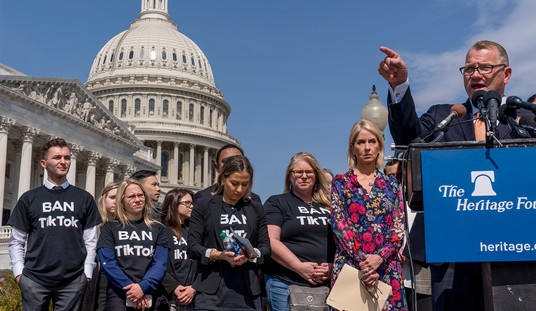We aren’t hearing much about the IRS scandal of late, but that doesn’t mean that it has been forgotten, either. With Congress on recess, the focus has moved more to Egypt and national security, but the anger of the IRS targeting scandal continues to expand. USA Today reports that even its defenders have grown angry and frustrated at its actions, and that its failure to provide transparency is fueling more critics:
After admitting it targeted Tea Party groups for additional scrutiny in May, the Internal Revenue Service has been called on to explain its formerly obscure process for policing political activity by tax-exempt groups.
And, by almost all accounts, it’s not doing a very good job. …
Congressional investigators have complained that the agency has turned over only a small fraction of the records they’ve sought. House Ways and Means Committee Chairman Dave Camp, R-Mich., said the IRS’ slow response to congressional inquiries “begins to look a lot like obstruction.”
Within the IRS, the Taxpayer Advocate Service has criticized the agency’s Exempt Organizations office for failing to reveal how agents review tax-exempt groups for political activity — in spite of laws requiring disclosure. “This lack of transparency reduced EO’s accountability to the public and made it easier to believe that EO was arbitrarily singling out applications for further review based on ideology,” Taxpayer Advocate Nina Olson said in a special report to Congress in June.
Even some of the agency’s biggest supporters say they’ve been frustrated by the IRS’ failure to respond to key questions.
“Steam has been coming out of my ears for the last three months, because the IRS hasn’t been able to defend itself. In a way, they’re their own worst enemy,” said Evelyn Brody, a law professor at the Illinois Institute of Technology’s Chicago-Kent College of Law. She said the IRS’ reticence is party justified by taxpayer privacy laws, but the agency could still do a better job explaining its processes.
If they cannot provide a better explanation, perhaps there isn’t one to give. A week ago, we discovered through the release of deposition testimony that the IRS was still applying extra scrutiny to any tax-exempt application that mentioned the Tea Party, at least as of August 1st — almost three months after Lois Lerner offered a apology to defuse the release of the IG report. At the same time, investigators discovered that Lerner used her personal e-mail to conduct business at the IRS, which in this administration is not exactly a surprise.
The investigations will continue when Congress returns after Labor Day, but the damage continues, and not just to the IRS or this particular administration. Glenn Reynolds argues in USA Today that the IRS scandal and others like it erode the foundation of American exceptionalism. That would be moral standing, and voters should return to making that a high priority when considering candidates for public office:
“Who can you trust?” That’s the title of a pretty good album, but it’s also the question for our age. One of the underpinnings of successful representative government is that voters feel they can trust their representatives, and those in the bureaucracy to whom power is delegated, to follow the law. That trust in government officials’ willingness to follow the law is the foundation for a sense that the law is legitimate, so that citizens feel a duty to follow the law as well.
But that trust has taken a big hit lately. …
Enough breaches of trust — and I haven’t even started to hit all the scandals out there, by a long shot — and ordinary people will start to assume that the whole system is corrupt. And if that happens, people will quit following the law because they think it’s the right thing to do, and only do so to the extent they’re afraid of getting caught. Plenty of countries operate on that principle. They’re just not as nice to live in as countries where the law has moral stature. When government officials breach trust, they push us closer to that sort of third world condition. Which is why, when they’re found doing so, they should be punished severely.
It’s also why we should try electing, and employing, people with strong moral compasses of their own; government officials who will follow the law because they think it’s the right thing to do, rather than simply to the extent they’re afraid of getting caught.
Based on the evidence to date, there seems to be plenty of room for improvement in that department. As we look forward to 2014 and 2016, perhaps we need to think harder about the character of the people we put into office.
That’s especially true when we give them as much power as we have in recent years — and with little effective oversight.








Join the conversation as a VIP Member